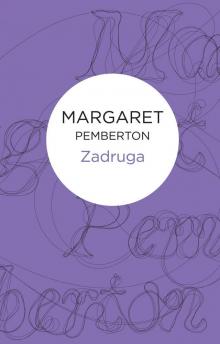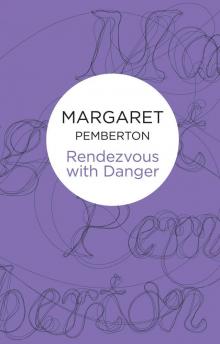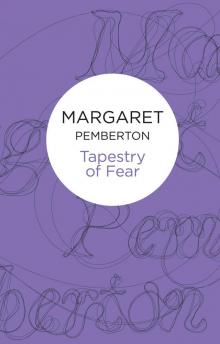- Home
- Margaret Pemberton
Zadruga Page 10
Zadruga Read online
Page 10
‘Were any members of the public killed?’ Alexis asked for a second time as he climbed back into the car.
Katerina shook her head, her eyes dark with distress and shock. ‘No, but there were over a dozen people hurt, some badly.’
The Daimler began to move, easing its way around the ambulance that had arrived for Lieutenant-Colonel Merizzi and then picking up speed as it followed in the wake of the other undamaged cars.
‘Alexis …’ Zita’s voice was thick with dread. ‘Alexis … what will happen if…’
His eyes met hers. ‘If the would-be assassin is a Serb?’ he finished for her. ‘God only knows, my dear. God only knows.’
Natalie said nothing. She still felt that, if she wasn’t very careful, she would faint. The sight of the injured had shocked her inexpressibly. She had never seen so much blood before. And now her parents were suggesting that it had been shed by a Serb.
‘Did they catch him?’ Alexis was asking.
Zita nodded. ‘He was young. We couldn’t see clearly because of the crowd that surrounded him when he was caught, but he looked to be little more than a boy.’
‘God damn him,’ Alexis said viciously, sure the would-be assassin was a Serb nationalist fanatic. ‘Thank God his attempt didn’t succeed. If it had done …’
He left the sentence unfinished. If the Archduke had been killed there would be no hopeful future for Slavs living within the empire and no peaceful future for Slavs living outside it. ‘Thank God,’ he said again, suddenly feeling far older than his forty-eight years. ‘The sooner Franz Ferdinand is aboard his train for Vienna, the better.’
When the Vassilovich Daimler sped up to City Hall Franz Ferdinand was on the steps, giving his scheduled speech thanking the city for its welcome.
‘It gives me special pleasure to accept the assurances of your unshaken loyalty,’ he said to the agonized-looking Moslem mayor standing by his side, ‘and affection for His Majesty, our Most Gracious Emperor and King…’
As Natalie saw the Duchess by his side, smiling bravely, her heart went out to her. She didn’t look like a woman who had just narrowly missed being blown apart by an assassin’s bomb. She was as matronly and as dignified as ever, only her lack of colour, accentuated by her white lace dress and large white hat, betraying her shock.
‘… I thank you cordially, Mr Mayor, for the resounding ovations with which the population received me and my wife, the more so since I see in them an expression of pleasure over the failure of the assassination attempt.’
Despite his being a Habsburg, Natalie was aware of grudging admiration for him. In his light blue, rightly-buttoned field-marshal’s uniform, a fountain of green peacock feathers sprouting from his peaked hat, he looked dramatically magnificent.
His speech over, a little girl approached the Duchess, handing her a bunch of roses. The Duchess bent forward a little to take the bouquet from her and with fresh horror Natalie saw a long, fine scratch on her neck. Had it been caused by a bomb splinter? Was that how near the motherly Sophie had been to a hideous death?
‘The Duchess is going to go upstairs to receive a delegation of the town’s Moslem ladies,’ Zita whispered to her. ‘We’re to remain in the City Hall’s vestibule. With luck we might even be given a cup of tea. I’ve never been more in need of one in my life.’
As the Duchess was escorted upstairs the Archduke and his entourage, Alexis included, disappeared into one of the downstairs rooms.
‘I wonder if Lieutenant-Colonel Merizzi has had to be operated on?’ Katerina said unhappily as chairs and refreshment were brought for them. ‘I wonder if all the other people who were injured are going to be all right?’
They were questions it was impossible to answer. Zita remained silent, aware of how grim the political situation would be if the Archduke’s attacker proved to be Serbian. Natalie remained silent also, trying to blot out all thoughts of the motivation behind the attack. The very prospect of it having been committed in the name of Slav nationalism filled her with nameless horror. Was the terrible scene she had just witnessed the ugly reality behind all her exciting meetings in the Golden Sturgeon? If so, what did it make Gavrilo and Nedjelko and Trifko? What did it make herself?
‘It won’t have been a Serb,’ she whispered fiercely to herself. ‘It must have been a madman. It has to have been a madman.’
‘There’s been a telephone call from the hospital,’ her father said an hour later when he rejoined them. ‘Merizzi’s injury isn’t serious. The Archduke intends visiting him at the hospital before continuing on to the museum.’
‘Dear God!’ Zita stared at him appalled. ‘He’s not still continuing with his programme, is he?’
Alexis nodded wearily. ‘Yes. The only change is to be the route. Instead of driving through the narrow streets of the old city as had been planned, we’re to drive back down Appel Quay to the hospital and then go from there to the museum.’
Zita breathed in deeply. The Duchess was making her way down the stairs, the Archduke and his entourage were emerging from their meeting and there was no opportunity for her to put the very grave doubts she felt, into words. Tight-lipped she waited until the official party had made their exit and then followed Alexis out to the waiting Daimler.
The cars, with the exception of the bomb-damaged car, left the City Hall in the same order they had arrived, with the Mayor’s car in the lead and the Vassilovich Daimler bringing up the rear.
Incredibly, Appel Quay was still full of people and this time when the royal procession appeared, the cheers were full of enthusiastic and sympathetic warmth.
‘General Appel tells me the would-be assassin tried to jump in the river before being captured,’ Alexis said grimly, as their car sped down towards the spot where the bomb had been thrown. ‘It would have been better for him if he had succeeded.’
Natalie, her butterfly-brain rescuing her from thoughts she couldn’t yet bear to contemplate, said musingly, ‘Isn’t it strange that the General’s surname is the same as the name of the street?’
Alexis’s mouth softened slightly. It was typical of Natalie to light on such an inconsequential fact at such a traumatic time. ‘Perhaps it’s because …’ he began.
He got no further. The Mayor’s car had turned off the Quay and was following the original route, speeding down Franz Josef Street, the city’s main shopping thoroughfare.
The Archduke’s driver had begun to follow him and then, as General Potiorek shouted at him to continue on down the Quay, he braked hard, beginning to back out of Franz Josef Street and once again into the Quay.
It was then, as the Archduke’s car was nearly at a standstill and as the following cars had slowed down in order that when it re-emerged on the Quay they would still be behind it, that the shots rang out.
It was a moment no-one present would ever forget; a moment that was to live in their memory, as bloodily fresh as the day it happened, for ever.
As Alexis and the Archduke’s aides sprang from their cars, General Potiorek could be heard shouting at the Archduke’s chauffeur to drive with all speed towards the Governor’s Residence.
Amid all the shouts and the struggle taking place only yards away as attempts were made to arrest the attacker, Katerina sat numbly in the rear of the Daimler, staring after the Archduke’s car, watching as the Duchess’s head slipped towards her husband; as her lavish white hat fell from her head, rolling in the dirt and the dust of the grimy street.
‘We’ve got the bastard!’ Natalie heard someone cry.
‘No we haven’t! He’s got a gun!’
There were other shouts, a whole cacophony of them as the violent fight continued.
The Archduke’s attacker, incongruously and immaculately dressed, fought like a devil. From where she was seated Natalie could see his dark suit, his white shirt with a stiff round collar, his high button shoes. And she could see the gun in his hand. She saw him lift it to his temple, saw a spectator hurl himself on him, seizing hold of his arm. She saw s
omeone else grab him by his collar; saw him twist free only to be caught hold of again. Two of the Archduke’s aides had their sabres drawn and were striking out at him. Dozens of hands were trying to seize him. She saw an official-looking man race to the scene and pitch into the mêlée. She saw him seize hold of the struggling figure; saw the figure in question hit out with a clenched fist and then, as his victim sank to his knees, saw him again lift the gun, bringing it down on the man’s head.
It was his last act of violence. There were too many hands on him for him to be able to struggle further. The gun was wrested from him and he was dragged away, still kicking, still struggling.
Natalie remained immobile, not hearing anything that her mother was saying to her; that Katerina was saying to her. She had seen everything that had taken place with nightmarish clarity. She had seen the gunman step from the crowded pavement when the Archduke’s car had been reversing back into the Quay. She had seen him take aim and then, as he pulled the trigger once and then twice, she had seen him turn his head away as if he couldn’t bear to watch the deed he was committing. And before he had done so, she had seen his face and she had recognized it. She couldn’t, in a million years, have failed to do so. It was a face she knew very well. A face she had last seen only a few short days ago. It was the face of her friend, Gavrilo.
Chapter Six
‘Take my wife and daughters immediately back to Ilidze,’ Alexis was saying to their chauffeur, the skin so taut across his cheekbones it looked like parchment. He turned to Zita. ‘I’m going to the governor’s palace. I have to find out the extent of the Archduke’s injuries.’
‘And the Duchess’s,’ Katerina said, ashen-faced. ‘I saw her fall against the Archduke. Her hat fell into the street.’
‘Jesus God.’ It was the first time in his life that he had blasphemed in front of his wife and children. None of them noticed.
‘As long as the attacker wasn’t a Serb,’ Zita said again as she had after the bomb attack. ‘Please God, don’t let him be a Serb.’
Alexis wasn’t listening. He had already turned on his heel and was striding towards the nearest available official car.
Neither Zita nor Katerina were aware of Natalie’s catatonic-like state as their car sped them out of the city and into the hills. In deep shock themselves, only a display of normality from her would have seemed odd.
Natalie felt as if she were dying. Her safe, secure, orderly world had shifted on its axis and toppled into mayhem. Never again would she be innocently naïve, thinking of Slav nationalism in terms of gallant glory in which no-one really got hurt; no-one really died. Now she knew differently. Now she knew how childishly immature she had been; how foolishly gullible.
She wondered what would happen to Gavrilo and immediately shut the thought from her mind. She couldn’t think about consequences; about Gavrilo or the Archduke or the Duchess, or she would lose all control. She would break down; go mad.
She sat staring sightlessly at the wooded hillsides she had thought so pretty only a few short hours ago. Perhaps Gavrilo’s shots had missed the Archduke; perhaps the bullets had been blanks and Gavrilo had meant only to frighten, not to kill; perhaps, like the bomb attack, things weren’t as bad as they appeared to be.
‘Tea,’ Zita instructed the minute they entered the hotel, ‘and a brandy.’ She looked at her daughters’white, exhausted faces. ‘Three brandies,’ she amended, judging them to be medicinal.
‘I need to lie down,’ Natalie said, speaking for the first time. It wasn’t strictly true. What she needed was to be alone. Somehow she had to live through the time until her father either telephoned or returned with news of the Archduke’s and the Duchess’s injuries. Somehow she had to stop herself from thinking; somehow she had to stay sane. To her vast relief Katerina said, ‘I’ll stay with Mama. She’ll need someone with her if Papa telephones with news.’
Natalie walked alone to their bedroom, shutting the door behind her. ‘It’s going to be all right,’ she said fiercely to herself as she sat down unsteadily on the edge of the bed, her fists clenched so tightly her knuckles were white. ‘The Archduke hasn’t been hurt. He’s going to return to Vienna this afternoon, just as we are going to return to Belgrade. What I thought happened, didn’t happen. It was a prank; a scare. It’s going to be all right!’
Lunch-time came and went and still there was no telephone call. In her private sitting-room Zita stared at a French ormolu clock, ceaselessly twisting the rings on her long slim fingers. It had been nearly eleven when the gunman had opened fire and now it was nearly two.
It was ten past two when Natalie heard the car approach. She leapt from the bed and ran to the window, watching as it sped up the tree-lined drive and skidded to a halt on the gravel fronting the hotel. A rear door opened so precipitately it rocked on its hinges and her father emerged, his face strained, his shoulders hunched. She didn’t wait to watch him enter the hotel, she spun on her heel, running to join her mother and Katerina.
‘He’s dead!’ Alexis said the instant he strode in on them. ‘He’s dead and so is the Duchess!’
‘No! It isn’t possible!’ Zita stumbled to her feet. ‘There must be a mistake, Alexis! They can’t both be dead!’
Alexis covered his eyes for a moment with his hand, struggling for composure. ‘They died within minutes of each other,’ he said when he could trust himself to speak. ‘There was no hope for either of them. Not the remotest of chances.’
He walked unsteadily across the room to the sideboard and poured himself a glass of water. He was going to have to recount what had happened to the king and the prime minister and a score of government officials when he returned to Belgrade and it was important that, right from the beginning, he did so with absolute accuracy.
‘The Archduke was hit in the neck,’ he said, wishing that neither Katerina nor Natalie were present. ‘He remained seated upright for several seconds and at first General Potiorek thought he hadn’t been seriously injured and then Potiorek saw there was blood coming from his mouth and minutes later he lost consciousness.’
‘And he never regained it?’ Zita’s eyes were wide with horror, her pupils so dilated no iris could be seen.
Alexis shook his head. ‘No. Potiorek says that when the Duchess fell against him he said, “Sophie dear! Sophie dear! Don’t die! Stay alive for our children,” and then when Count Harrach tried to support him and asked him if he was suffering badly, he said faintly, “It is nothing. It is nothing.”’
No-one spoke. No-one was capable of speaking. At last Zita said thickly, ‘And the Duchess? What happened to the Duchess?’
Alexis blanched. Recounting the way in which the Archduke had died had been bad enough. Detailing the way in which the Duchess had died was going to be even more of an ordeal. Keeping his voice as tightly controlled as possible he said, ‘She must have turned towards the Archduke, trying to protect him, and a bullet passed through the car door and the upholstery of the seat and into her groin. She died from internal bleeding. The doctors haven’t said so, but she must have been dead before she was carried into the palace.’
Zita sank down on to the nearest chair. ‘Her poor children,’ she whispered, ashen-faced. ‘Who will tell them? Who will break the news?’
‘A telegram has been sent to their tutor.’
He braced himself for what was to come and seeing the movement Zita said with fresh fear, ‘What is it? What haven’t you told us? Have there been other deaths? Has…’
‘The assassin was a Serb. A Bosnian Serb as was the would-be attacker who threw the bomb. I’ve already telegraphed Belgrade with the news. God only knows what is going to happen when it’s made public. There won’t be a Serb in Sarajevo safe from Austrian retaliation, and that includes ourselves.’
‘Then we’re going back to Belgrade today, as planned?’
‘We’re leaving immediately. The sooner I can speak to Pasich about Princip the better. He may not be one of Apis’s dupes but…’
‘Prin
cip?’ Katerina grasped hold of the back of a chair for support. ‘Did you say the assassin’s name was Princip?’
Alexis nodded, his nostrils pinched and white. ‘The police got his name out of him immediately, though nothing else. His name is Gavrilo Princip and the would-be assassin’s name is Nedjelko Cabrinovich …’
There was an anguished cry and as all eyes turned towards her, Natalie slid unconscious to the floor.
‘Water! Quickly!’ Zita cried, rushing to her side. Alexis hurriedly refilled his glass, spilling droplets on the sideboard’s polished surface in his haste. Katerina remained where she was, still holding on to the chair, her thoughts in chaos.
‘She’s coming round.’ There was a sob of relief in Zita’s voice as Natalie’s eyes began to flutter open. Alexis went down on one knee beside her, sliding an arm beneath her shoulders and lifting her so that she was resting against him.
‘Take a sip of water, darling,’ Zita urged her anxiously as Alexis held the glass to her lips. ‘You’ll soon feel better.’
Natalie, doubting it, obeyed.
‘Lift her on to the sofa, Alexis.’ Zita’s initial panic was ebbing. ‘She’ll be all right in a few minutes. It was the shock of hearing all those ghastly details …’
‘No.’ At Katerina’s interruption both Zita and Alexis turned to look at her in astonishment.
‘No,’ she said again as Natalie’s eyes flew wide in a vain plea for her to say no more. ‘It wasn’t the shock of hearing about the Archduke’s and Duchess’s death. It was something else.’ Her eyes held Natalie’s. ‘You have to tell Papa,’ she said, knowing there was no alternative, knowing that even if Natalie never spoke to her again she had to force her to admit to her friendship with Princip. ‘You have to tell Papa,’ she said again. ‘He has to know.’
Alexis swung Natalie up in his arms and crossed the room, laying her down on a sofa.
‘What is it I have to know?’ he demanded curtly. ‘If you are wasting precious time recounting trivialities I shall be extremely displeased. It is essential that I make my report to the king and the prime minister at the earliest possible moment …’

 The Summer Queen
The Summer Queen Moonflower Madness
Moonflower Madness The Londoners
The Londoners The Flower Garden
The Flower Garden Yorkshire Rose
Yorkshire Rose Vengeance in the Sun
Vengeance in the Sun Zadruga
Zadruga Beneath the Cypress Tree
Beneath the Cypress Tree Magnolia Square
Magnolia Square Party in Peking
Party in Peking Lion of Languedoc
Lion of Languedoc Forget-Me-Not Bride
Forget-Me-Not Bride The Guilty Secret
The Guilty Secret Rendezvous With Danger
Rendezvous With Danger A Season of Secrets
A Season of Secrets Silver Shadows, Golden Dreams
Silver Shadows, Golden Dreams The Four of Us
The Four of Us Devil's Palace
Devil's Palace Never Leave Me
Never Leave Me An Embarrassment of Riches
An Embarrassment of Riches African Enchantment
African Enchantment White Christmas in Saigon
White Christmas in Saigon Coronation Summer
Coronation Summer A Multitude of Sins
A Multitude of Sins Tapestry of Fear
Tapestry of Fear A Many-Splendoured Thing
A Many-Splendoured Thing